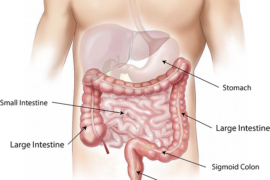Alcohol isn’t known as one of the three gateway drugs for no reason. Its cultural prevalence makes it hard to avoid completely, and for some people, once they get started, they can’t stop. The fact that an abundance of alcohol damages not only the body but also social relationships is not new information, but even that isn’t enough to stop some from becoming alcoholics. Those who suffer from alcoholism are unable to control their drinking despite being aware of all its negative side effects. On the bright side, recovery is possible. With an alcohol detox, one is able to clear out the alcohol from their system and begin the journey to an alcohol-free life.
What Is An Alcohol Detox?
An alcohol detox is when a person chooses to rid the alcohol from their body, and this is done by stopping the intake of alcohol, drinking plenty of fluids to stay hydrated and help flush out the alcohol, and eating foods rich in vitamins. For those who are not regular consumers of alcohol, a detox should be relatively quick with mild withdrawal symptoms at most, for instance nausea, sweating, and headaches. However, those who drink alcohol often may suffer severe withdrawal symptoms, which include but are not limited to vomiting, irritability, being short of breath, and in extreme cases, even seizures. Worst case scenario, withdrawal symptoms can cause deaths. These symptoms tend to begin around 4-12 hours after a detox has begun, so those attempting a detox should have sufficient time to prepare. So, while an infrequent alcohol drinker may be able to detox at home, it is safer for those who have suffered from alcoholism for an extended period of time to detox at a medical center where they can receive necessary help and medication. As a measure of extra precaution, regular drinkers should speak with a medical professional before beginning an alcohol detox. People preparing for an alcohol detox should understand that it is hard and should not be too harsh on themselves during the process.
Alcohol Detox Care
For those detoxifying on their own, remembering to take care of themselves during the process is crucial. It helps to have company, for instance friends and family, who are able to offer moral support as well as help out with any tasks that someone in the process of detoxing might need assistance with. Having comfortable surroundings—soothing music, soft lights, a place to rest, and food and drinks readily available—can make the process less painful. Food wise it is recommended to add cayenne pepper, which can reduce nausea, and basil, an anti-inflammatory and antioxidant, to meals. If medications were prescribed, they should be easy to access and taken exactly as recommended. During this process all alcohol should be out of sight and mentioned as little as possible. Those in the process of detoxing should not contact their drinking friends or visit locations they used to drink at, for that might unintentionally lead to relapsing.

Emergency Help
There are cases when calling for emergency help are necessary during detoxing. These include if the one detoxing is at risk of hurting themselves or others, if they are vomiting uncontrollably and blood or a coffee ground like substance appears, they have a seizure, they pass out, they begin having hallucinations, they have an abnormally high heart rate, or if they have chest pain. Should any of these issues arise, getting medical help as soon as possible is of utmost importance. If any other concerns come up during the detoxification process, it is better to call for medical help than to search for solutions online.
Alcohol Detox Treatments
For those struggling with alcoholism who have tried detoxing by themselves but failed and who desperately want to return to a life of sobriety, alcohol detox treatments are a helpful option. These can be found at professional alcohol rehab centers, such as alcohol detox orange county, which can be recommended by a doctor. At these centers, a team of experts will help create a personalized plan to help their patients detox safely and effectively. For patients who feel it is necessary, most of these centers have inpatient programs where patients can stay throughout their journey to recovery.
Rehab centers offer programs alongside a medically supervised detox in order to make recovery easier for their patients. Examples of these include mental health support, group counseling, and even lifetime aftercare. Regarding lifetime aftercare, professional centers genuinely care about their patients, so they try to help them maintain their newfound sober lifestyle. Studies have proven treatment to be effective in reducing the risk of falling back into alcoholism.

After Detoxing
It is important to take care of oneself even after detoxing to lower the risks of relapsing. For some, it may help to join support groups where they can discuss the obstacles they have had to overcome with those who have endured similar trials. Being able to talk about shared struggles helps people feel less alone and can be the support a recovering alcoholic needs to push forward with their journey.
Those who have just come clean should request their friends and family to avoid talking about or having alcohol in their presence until they feel they are fully recovered or until they feel comfortable with the topic.
Benefits of an Alcohol Detox
Leaving behind the life of an alcoholic means embracing a healthier self. The constant consumption of alcohol over a long term can lead to increased risks of high blood pressure, heart problems, and developing certain cancers. Short term effects are no less dangerous for the impaired judgment caused by alcohol can lead to life threatening poor decisions. Also, no longer drinking alcohol means no more spending money on alcohol, and the money saved from that can be used to fund a variety of fun, enriching activities. The time that would have been spent drinking and nursing hangovers can be used for socializing with friends and family in a healthy, enjoyable manner. Non-alcoholics are able to live more productive, fulfilling lives as they are not hampered by the depressant effects of alcohol nor by the ill feelings caused by a hangover.
*collaborative post


































